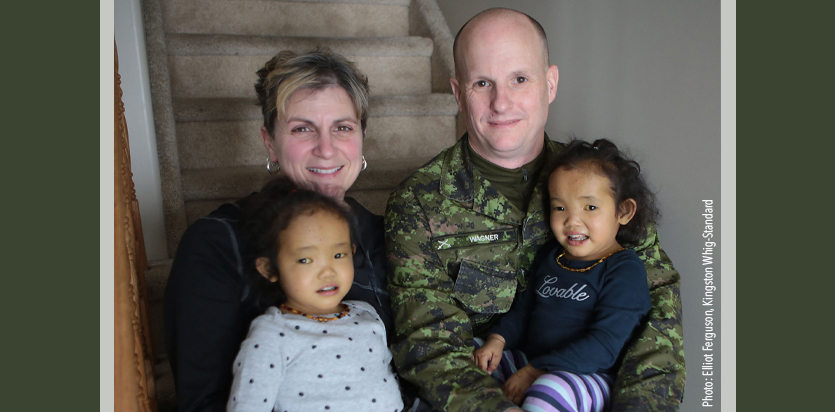At Home
Second Twin Will Die Without Liver Donation
Logistics officer Major Michael Wagner and his wife Johanne are, without a doubt, exceptional parents. With five biological children of their own they adopted four Vietnamese children, three of whom are deemed special needs.
Parenting nine children is not easy during the best of times. The Wagners must also contend with the knowledge their Vietnamese twin girls, Binh and Phuoc will die without liver transplants.
When the Wagners adopted the girls, they were aware they suffered from Alagille syndrome, a genetic disease that affects the liver, heart, kidney and other systems of the body.
“Michael has been tested and he is able to donate half of his liver to one of the girls,” said Joanne Wagner, mother of the twins and a former teacher.
Naturally the parent’s refused to choose one daughter over another so transplant doctors will make that decision for them.
But time is running out to find another compatible liver. The three-year-old twins have end-stage liver disease, and infection is a looming concern.
Alagille’s syndrome will continue to attack the girl’s livers, causing further abnormalities in the ducts that carry bile from the liver to the gallbladder and small intestine. Their livers no longer work properly due a buildup of bile preventing the removal of waste materials from their bloodstreams.
The best option for the second liver donation is to find a living donor who meets the criteria to donate a portion of their liver.
Donors go through a rigorous process to ensure they are a good match with recipients. Then the live liver donations can be scheduled. A living donor must be a healthy adult between 18 and 60 years old, be in good shape with a body mass index of less than 35 and have a compatible blood type group, in the twin’s case either type A or O.
Since the liver regenerates itself, donors can expect to be back to normal within a year of the operation. The strict selection process is meant to protect the donor. After more than 600 live liver transplants performed at the University Health Network, no donor has died.
Prior to the news hitting the media the family lived very quietly and simply, making an effort to save money and save Michael’s vacation days to travel back to Vietnam to take supplies to the orphanages where they found their children.
Today, members of the media are emailing, messaging and phoning the family for interviews. Plus, concerned people from all over the world are offering the family kind words, prayers, and applying to become live liver donors.
Joanne explains that in spite of their dire circumstances they are very happy.
Michael, Joanne, and their children love being a part of the Canadian Armed Forces. They see the military community as their huge extended family.
“If we hadn’t taken this path we may have slipped onto a path of materialism and overconsumption. The less we have, the happier we are. I cannot say I look at any other person and see something I envy,” said Joanne.
All of the screening and testing to become a live liver donor is done at University Health Network in Toronto. The initial process can take three or four days. The surgery can mean between five and 10 days in hospital, followed by up to six weeks off work to recover.
The Wagners have set up a Facebook page called Liver Transplants for our Vietnamese Twin Girls to raise attention to the issue and encourage people to get screened as potential donors.
“In our Facebook page ‘About’ section the application and criteria can be accessed. People can see what the doctors will look for in a donor. It’s as simple as, the girls will die without transplants,” said Johanne.
More information about live liver donation can be found online at the University Health Network website and at the Ontario government’s Trillium Gift of Life Network website.
Please Like and Share the Wagner’s Facebook page to raise awareness of their request for a second donor.
Get More! Receive six issues of Canadian Military Family Magazine in your mail box for only $17.95! Click here to subscribe NOW!










